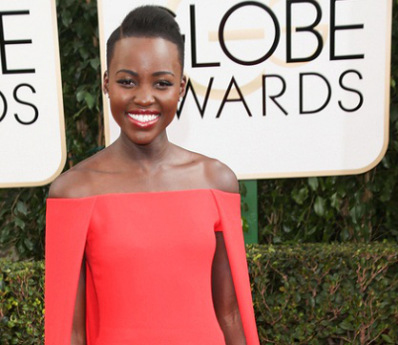ARTICLE
Really, Oscars? 2014 Noms Shady Business As Usual
POSTED BY WLAS January 17th, 2014 0 COMMENTS
 Last year was supposed to be a banner film for Black filmmakers. Fruitvale Station, The Butler, and 12 Years a Slave were released and their respective acting casts, writers and directors received major critical acclaim. But today’s Oscar nominations prove just one thing – Hollywood hasn’t changed much.
Last year was supposed to be a banner film for Black filmmakers. Fruitvale Station, The Butler, and 12 Years a Slave were released and their respective acting casts, writers and directors received major critical acclaim. But today’s Oscar nominations prove just one thing – Hollywood hasn’t changed much.
This year’s top acting, writing and directing nominees were almost all White, established Hollywood elite, many of whom have already been nominated or won Oscars. I won’t argue that black Hollywood has some ways to go with writing, directing and budgets. Some of “our” most popular films, which a lot of the times are comedies, are not ever going to be Oscar-friendly. We don’t get the budgets, the top behind-the-scenes talent or the wealth of resources and experience that many white films do. Some of us have used hustle and grit to create viable careers in the film industry, sacrificing craft and artistry to make money because our movies have to win at the box office. Their movies don’t.
We are too often marginalized and limited to crime dramas, comedies and frothy relationship movies to even compete in the much more nuanced high-quality movies Oscar voters look for. That’s why the Oscar nominations this year are such a disappointment. While 12 Years a Slave was expected to, and did get a Best Picture, Best Adapted Screenplay, Best Director and Best Supporting Actor and Actress nods, The Butler was virtually shut out, as though two movies with Black directors and Black leads cancelled each other out.
Yes, Oscar voters could have determined that 12 Years a Slave was just a better movie. But it’s interesting that while The Butler shows Black history from the perspective of the experiences of Black family, the story in 12 Years a Slave is still one where the Black characters are responding to actions by the white ones. Are white voters just responding to a movie that better fits their worldview? To be fair, 12 Years is true in that respect to its source material. But could that have been the subtle difference that impacted its Oscar showing?
Even more disappointing is the treatment of Fruitvale Station. Fruitvale started off behind because of its release well before awards season begins in the fall. But writer/director Ryan Coogler’s take on the real-life shooting of Oscar Grant, who was shot and killed by San Francisco transit police in 2009, was the kind of solid indie film that the Oscars adores when the cast and director are White. The movie was subtle and nuanced, something our films don’t always get to be, while humanizing a man who most knew of from a news headline. Actor Michael B. Jordan was stellar in the role, I daresay putting in a better performance than the more mainstream Chiwetel Ejiofor, nominated as Best Actor for 12 Years a Slave.
Newcomer Lupita Nyong’o, once a shoo-in for Best Supporting Actress for 12 Years has lost ground to Jennifer Lawrence, Hollywood’s latest It Girl, who won the Best Actress Award last year. Nyong’o’s profile is up, for sure, but apparently a first-time actress nailing what would be a challenging role for veterans doesn’t trump the icon-building of a popular new star.
There is some good news this year. Barkhad Abdi is a triumphant first-time Oscar nominee in the Supporting Actor category for Captain Phillips. To my knowledge, he is the first ever-Somalian born actor to be nominated. He must be having the best year of his life, going from a complete unknown living in Minnesota to hanging out at the Golden Globes. I’m sure for him, just being there is the win, and his nomination is a welcome acknowledgment that Black acting talent does not just come from the United States or England for those who can do a spot-on American accent. As most moviegoers know, both the director and star of 12 Years a Slave are Black Brits.
Oscar voters, who are still overwhelmingly White, are obviously more apt to vote for the familiar and those whom they know and work with regularly. Martin Scorcese and Meryl Streep, nominees again this year, are among the most respected and Oscar-nominated people in Hollywood. And Oscar voters have messed up before – they are the ones who denied Al Pacino an award for both Godfather movies and Dog Day Afternoon, then granted him one for Scent of A Woman, largely viewed as a “makeup” Oscar.
But this year’s crop of nominated movies do not even share the critical consensus that usually makes them Oscar-worthy – top nominees Wolf of Wall Street and American Hustle have earned mixed reviews. Sure, comparing works of artistic achievement is essentially like comparing apples and oranges. Some folks will just never like orange juice. But this year’s Best Actress category doesn’t have one new nominee; all of the actresses are previous nominees and/or winners. The same is true, with some exceptions, throughout most of the acting and directing categories.
I guess we can thank the Oscars for throwing Black folks a bone for nominating Pharell Williams in the Original Song category for “Happy” from Despicable Me 2. (No dis to Williams implied.) I’m sure he woke up in just that mood after hearing the news. And Twenty Feet From Stardom, the documentary about background singers seeking their own spotlight is a nominee with a good chance to win. But, um, Oscar…haven’t we branched out beyond music awards yet?
Hollywood’s choice to overlook Black movies that could and should have qualified given their subject matter and quality this year does give weight to the usual conspiracy theories more so than before. The fall whitewash of movies seemed a smug reminder that whites still got Hollywood on lock – if for no other reason that they control budgets and distribution, typically where Black films get shortchanged.
The 2014 Oscars, regardless if 12 Years a Slave continues its run (and there’s a whole ‘nother piece on why it’s good and bad that its still a frontrunner) will be the usual self-congratulatory celebration of the Hollywood elite. But for Black viewers, it’s just another bitter reminder that in the film industry, we are still second-class citizens.
Leave a Reply

















